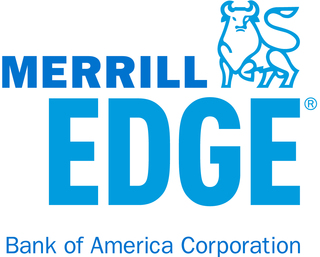5 Best Stock Trading Apps of 2025
Money is not a client of any investment adviser featured on this page. The information provided on this page is for educational purposes only and is not intended as investment advice. Money does not offer advisory services.
*Rates and APYs are subject to change. All information provided here is accurate as of February 21, 2024.
Stock trading is the buying and selling of stocks — or ownership shares of a company — through a brokerage. Trading apps, which allow investors to trade stocks from their mobile phones, play a critical role in helping traders keep track of the market and buy some of the best stocks.
With so many options available, it’s difficult for investors to choose the best stock trading apps that will give them what they need — regular news updates, accurate price forecasts and more. That’s why we compiled a list of the best stock trading apps to help you trade effectively in 2025.
Our Top Picks for the Best Stock Trading Apps
- Fidelity Investments: Best for Wide-Range of Investment Products
- Merrill Edge: Best for Research
- SoFi Invest: Best for Beginners
- Interactive Brokers: Best for Advanced Traders
- TD Ameritrade: Best for Customer Support
Best Stock Trading App Reviews
- Different versions of the app for novice and expert traders
- User-friendly interface and active help desk to support new users
- Non-Fidelity mutual funds cost $49.95 to $75, which is expensive compared to other options
Fidelity offers access to a wide variety of investment products and services for all types of investors, regardless of their level of experience. You can choose anything from stocks, fractional shares, ETFs, options, mutual funds, crypto, fixed-income securities and international trading. In addition, it offers most types of investing accounts, including individual brokerage accounts, retirement accounts and 529 college savings plans.
Like most trading apps, Fidelity features commission-free trades on online U.S.-listed stocks, ETFs and options. Newly issued fixed-income securities, like CDs and bonds, don’t have transaction fees either. However, secondary issues have a $1 fee per bond, options a $0.65 fee per contract and non-Fidelity funds transaction fees of up to $75.
Fidelity’s mobile app is user-friendly and intuitive, offering a smooth navigation experience. You can easily get stock quotes, check top market performers and research highly rated funds by sectors and particular goals, such as funds for fighting inflation or retirement.
Those looking for a more hands-off experience can opt for Fidelity’s robo-advisor service, FIdelity Go. While you need a minimum balance of $10 to start investing, there is no minimum amount required to open an account and no advisory fees for balances under $24,999. Active traders, on the other hand, can download Fidelity’s Active Trader Pro, which is available for both Mac and PC. This stand-alone platform features advanced charting for real-time analysis and risk estimates.
- Fees
- $0
- Promotions
- New users who deposit $25 or more receive $50 cashback.
- Minimum Deposit
- $0
- Idea Builder turns data into broad themes to help you find new investments
- Automatically move your idle cash to a money market fund for additional profits
- Monitor your account's security from the Bank of America app
- Doesn't offer fractional shares
- Doesn't offer cryptocurrency trading
Merrill Edge is one of the most widely used stock trading platforms in the U.S. It offers guided investing and self-directed accounts with no minimum investment requirements or annual fees. However, guided investing accounts have different minimum and annual fees, depending on whether you choose online managed portfolios or invest with the guidance of an advisor.
In addition to its guided and self-directed accounts, Merrill Edge also offers an Idea Builder tool. This unique feature uses proprietary data from Bank of America and environmental, social and governance (ESG) criteria to provide actionable ideas for investing in stocks, mutual funds and exchange-traded funds (ETFs) that might work with your portfolio and align with the social issues you care about.
Another key advantage of using Merrill Edge is its seamless integration with Bank of America. If you already have a Bank of America account, you can conveniently manage all your financial information in one place and easily access your portfolio, account balances and other financial information through the Bank of America website or mobile app.
One of the drawbacks of Merrill Edge is that it doesn't offer fractional shares, which makes it difficult to invest in more expensive stocks. Nevertheless, the app does allow users to automatically move their idle cash into a money market fund, which can provide more earnings than having your cash sit uninvested in a brokerage account.
- Fees
- $0
- Promotions
- Earn up to $750 in cash by signing up for an account and depositing at least $5,000.
- Minimum Deposit
- $0
- Helps investors choose which stocks to invest in
- Offers stocks, fractional shares, ETFs, and options
- Doesn't offer tax-loss harvesting
- Charting abilities are quite weak due to lack of technical indicators and customizability
SoFi Invest is an all-in-one app that combines banking services and investing. You can open a retirement account with no minimum balance, choose between active or automated investing, and access zero-commission stocks, fractional shares and ETFs, options and mutual funds, as well as alternative investments like private credit, commodities and pre-IPO funds.
SoFi’s straightforward user interface makes it a good option for novice investors. And those who want to avoid the hassle of doing their own research and analysis can opt for automated investing, which offers rebalancing and customizable ETF-only portfolios.
SoFi Invest allows investors to buy fractional shares, which is a great way to start buying equity in leading companies without having to pay full-share prices.
Some drawbacks: SoFi doesn’t feature bonds or offer tax-loss harvesting, a feature that can help you save on taxes by selling investments at a loss. Lastly, its educational resources and charting are also somewhat basic compared to other apps.
- Fees
- $0
- Promotions
- Get up to $1,000 (odds: 0.026%) upon opening a SoFi Invest account and depositing $50.
- Minimum Deposit
- $5 to start investing; $5 for fractional shares
<sub>INVESTMENTS ARE NOT FDIC INSURED • ARE NOT BANK GUARANTEED • MAY LOSE VALUE. Probability of Member receiving $1,000 is a probability of 0.026%; If you don’t make a selection in 45 days, you’ll no longer qualify for the promo. Customer must fund their account with a minimum of $50.00 to qualify. Probability percentage is subject to decrease.Brokerage and Active investing products offered through SoFi Securities LLC, member FINRA / SIPC.</sub>
- Allows users to hold multiple currencies and trade on foreign stock markets
- Extensive list of research tools provide accurate stock market data
- Multiple trading platforms for varying levels of experience
- Account setup process can be long and complex for new traders
- Some reviewers have complained about subpar customer service
- Wealth of advanced options and tools can be overwhelming for new investors
Interactive Brokers (IBKR) meets the needs of a wide variety of investors through multiple trading platforms. With features like advanced order types and sophisticated charting, IBKR’s mobile app is one of the more advanced options in our list. Users can make trades with a single tap and customize the information displayed in the app to fit their needs. These features make IBKR's a popular option among experienced traders.
Interactive Brokers allows users to trade in the U.S. as well as 200 countries and 150 global markets. They can also hold assets in 26 currencies, a feature that can be useful for those who regularly trade in foreign markets.
IBKR’s quotes and in-app research also outperform those of other stock apps, with comprehensive data and insights that are easy to interpret, even on a small screen. Casual investors or those just starting out will find IBKR LITE, the company's commission-free plan, sufficient for their needs. Larger investors and active traders looking for advanced charting and other features may opt for IBKR PRO.
Note that while IBKR offers commission-free trades of U.S.-listed stocks and ETFs, its fee schedule for international and global markets is tiered and varies by country and monthly trade values and volume, which can be confusing for inexperienced investors.
- Fees
- IBKR LITE: $0 / IBKR PRO: $0.0005 per share
- Promotions
- Up to $1,000 in IBKR stock for investors opening new accounts.
- Minimum Deposit
- $0
- Access to third-party research from Morningstar and CFRA
- One of the most extensive lists of mutual funds and commission-free ETFs in the industry
- Educational resources and managed account options make it one-stop-shop for investors
- Higher margin rates when compared to other stock trading apps
TD Ameritrade offers access to a wide variety of investment options, including online stocks, options, futures, forex, CDs, bonds and one of the largest selections of mutual funds and ETFs in the industry. Like most trading apps on our list, TD Ameritrade features commission-free trades on stocks, ETFs and options, with a $0.65 fee per option contract.
TD Ameritrade provides 24/7 support via multiple channels, including phone, text, live chat, social media and even fax. If you prefer an even higher-touch experience, it also provides in-person customer support at over 250 branches across the U.S.
Besides round-the-clock customer support, TD Ameritrade offers online webinars and has an extensive online library of educational resources for investors. Users can also access third-party research from well-respected sources like CFRA and Morningstar.
Investors looking for more advanced trading tools to execute complex strategies and trades may want to opt for TD Ameritrade’s online and desktop platform, thinkorswim. Novice investors will also appreciate the platform for its paper trading feature, which allows them to practice trades with electronic money.
A potential drawback of TD Ameritrade is that its margin interest rates are higher than many of its competitors (currently starting at 14.00% for balances below $10,000). Keep that in mind if you’re planning to trade with a margin account.
(Check out our article on how to use thinkorswim for beginners to learn more about setting up your account and how to buy different securities.)
Note: Beginning in May, all TD Ameritrade accounts will be folded into Schwab, though thinkorswim will be unchanged and still accessible.
- Fees
- $0
- Promotions
- Get up to $1,000 for referring a friend and depositing at least $500,000.
- Minimum Deposit
- $0
Other stock apps we considered
E*TRADE
- Separate trading platforms for new and advanced traders
- Offers over 6,500 mutual funds with no transaction fees
- Provides investing courses (courtesy of Morningstar) on a wide range of topics
- Website is not as transparent as other top stock trading apps
- Some products, including fractional shares, are only available to users of its robo-advisor
E*TRADE is a versatile stock trading app that seeks to provide investment products and services to a wide range of investors. Whether you’re an active or passive trader looking for either long- or short-term investments, E*TRADE can probably meet your needs.
E*TRADE has helpful educational resources to support new traders, including webinars and tools that allow you to perform technical analyses of more complex scenarios. However, the overall quality of E*TRADE’s app falls short of its peers, with many Android users especially reporting bugs.
- Fees
- $0
- Promotions
- $600 cash welcome bonus when opening a new account with promo code "BONUS23."
- Minimum Deposit
- $0
TradeStation
- Desktop and mobile apps include charts, news and data feeds
- Trade 10+ cryptocurrencies
- Charges high non-trading fees
- No access to free mutual funds
The TradeStation app is a good choice for professional investors. It allows users to buy and sell cryptocurrency and engage in futures trading, which offers high-risk, high-reward opportunities to advanced traders.
With that said, TradeStation is a relatively expensive trading platform, charging hefty fees on occasional events like outgoing account transfers, inactivity, annual IRA account maintenance and account terminations. TradeStation also lacks access to no-transaction-fee mutual funds, which many of its peers provide. It's also an expensive option for new or small investors, who may be charged a $50 inactivity fee if they don't meet TradeStation’s minimum trading volume.
- Fees
- Free trades are limited to 10,000 shares per trade, $35 IRA annual account fee, $50 IRA account termination fee, $125 outgoing account transfer fee, $50 inactivity fee
- Promotions
- Cash bonus of $150 - $5,000 when you deposit $5,000 to $1,000,000.
- Minimum Deposit
- $0
Axos Self-Directed Trading
- Seamless integration with Axos Bank, making it easier for existing clients to make trades
- Clients can apply for personal and auto loans
- Several features usually offered for free are exclusive to premium users ($10/month)
- $1 fee per trade can add up if you're making multiple trades per day
Axos Self-Directed Trading is a zero-fee stock trading app with a $1 minimum deposit. It supports over 10,000 fee-free mutual funds, plus more that cost $9.95 to buy.
Axos Self-Directed Trading charges $10/month for a premium version of its mobile app plus a $1 fee per contract for option trading, both of which will put off some cost-conscious traders. Its educational tools and resources are also subpar relative to other investment apps, with very little in the way of tutorials and third-party research reports, which means it isn’t the best choice for new investors.
- Fees
- $1 fee per trade, $10 monthly subscription for Axos Elite
- Promotions
- Earn $200 by opening an account and depositing $2,000 within the first 60 days of opening an account.
- Minimum Deposit
- $1
- Platform
- Self-directed trading platform
Stock Trading Apps Guide
Read on to learn how stock trading apps work, how to invest with them and what to keep in mind when choosing one.
Main things to know before choosing stock apps
The number of trading apps available has increased over the past few years, largely because of a growing community of retail traders entering the markets for the first time.
There are free and paid stock trading applications that get the job done. Regardless of which you choose, there are a few things to keep in mind.
Consider your trading experience
Take into account your goals and trading experience when making investment decisions, especially when choosing between brokerage accounts. Robo-advisors, for example, may be suitable for new investors with little stock market experience. These automated portfolio managers are a low-cost option that make investment decisions based on the individual’s risk tolerance and goals.
Those wanting personalized advice — and who don’t mind paying more for it — may opt for a human financial advisor instead. A financial advisor will manage the client's portfolio on their behalf and may also help with other aspects of their financial plan.
Lastly, investors with a good understanding of the stock market may go with a self-directed account, which provides greater control over investment decisions. Practically all self-directed brokerage platforms provide educational resources and analysis tools to help investors make more informed decisions. And they generally charge a fee per stock trade or options contract.
Determine which services you need
Knowing whether you're an active or passive trader isn't enough to help you choose the right stock trading app. Depending on your experience as an investor, you may need some tools over others.
Professional traders will likely need advanced tools to track the performance of their positions daily. In contrast, new investors with little knowledge of the stock market would likely benefit from simpler, less cluttered apps with a robust suite of educational resources.
Understand all fees
You may think you’ve found a genuine low-cost app when you come across a "zero-fee broker." However, claims of “zero fees” can be misleading for several reasons. For one, some stock trading apps will pass on hidden charges that only show up after you've invested.
There may also be somewhat hidden fees, like fund management fees. These fees are a percentage of the assets under management and vary depending on whether the fund is actively or passively managed. So while securities such as ETFs and mutual funds are typically commission-free, they often have management fees that can be found in the fund's prospectus.
How do stock trading apps work?
Stock trading apps allow investors to buy and sell stocks online. To use a stock trading app, users must first create an account and deposit funds into it. Once the account is set up, users can research different stocks, track their performance and decide which they want to buy or sell.
When an investor is ready to place a trade, they’ll select the stock they want to buy or sell and enter the number of shares they wish to trade or the amount in dollars (if the app offers fractional shares). The app will calculate the total cost and show users the trade on a confirmation screen. Once the user confirms the transaction, the app will send the order directly to the broker, who will execute the order.
Once the order has been completed — often within a fraction of a second — the user will receive a trade confirmation, and the stock will be added to their portfolio. The app will also provide real-time updates on the stock's performance so the user can monitor their investments.
How do you invest with stock apps?
- Create an account: Provide your personal information and create a username and password.
- Add funds to your account: Transfer money from your bank account to the stock app.
- Pick a stock to invest in: Research stock options and pick one that fits your investment strategy.
- Place your order: Determine which type of order you want to place (market order, stop order or limit order) and how many shares you want to buy.
- Stick to your plan: Regularly monitor your investments and stay informed. Don’t act hastily based on emotions but keep your goals and risk tolerance in mind when making decisions.
Are stock trading apps reliable?
To make sure a stock trading app is reliable, check whether it's registered and complies with the rules set forth by regulatory entities such as the Securities Exchange Commission (SEC) and the Financial Industry Regulatory Authority (FINRA).
Also verify whether the app is insured by the Securities Investor Protection Corporation (SIPC), which can reimburse you up to $500,000 in lost assets ($250,000 in cash) in the event of the broker’s insolvency.
Lastly, stock trading apps should also have security measures — such as encryption, two-step verification and biometrics — in place to protect your personal information and financial data against unauthorized access and other threats.
Stock trading apps FAQs
Is there a fee to open or maintain an account with stock apps?
Many stock trading apps don't charge fees to get started, though some do. Similarly, most stock apps don't charge monthly fees, but a small number charge for premium plan access.
Some apps also have minimum deposit requirements and charge account maintenance or inactivity fees if your funds drop below a certain threshold.What is the minimum deposit to open an account with stock apps?
Is it possible to trade stocks without a commission?
Yes, it's possible to trade stocks without paying hefty commissions and trading fees. Many stock apps offer commission-free trading or have commission-free accounts, which can make your trading more profitable.
Some platforms offer free trades for a set period — often a month or a quarter — though it's best to choose an app that charges the lowest fees over the long run. It's also important to note that even apps with commission-free trading may charge other fees, including inactivity fees, account maintenance fees, and higher spreads stemming from payment for order flow.How do I withdraw money from a stock app?
Withdrawing money from a stock app is generally a straightforward process. In most cases, you'll need to enter the withdrawal amount, the method (wire transfer, ACH, etc.) and the bank account where you'd like the funds to go. If you're withdrawing from an account outside the U.S., you'll need to provide additional information, such as a SWIFT code.
After you've submitted your withdrawal request, it may take a few business days for the funds to arrive in your account. Remember that some apps charge a fee for withdrawals, so check before you finalize your request.How we found the best stock trading apps
To create a list of the best stock trading platforms, we looked at a range of factors, including each app's features and pricing.
- Fees – One of the biggest concerns of new investors searching for the right stock app is fees. For many, the best stock trading app is the one that charges the lowest fees and has no hidden costs. With that said, there are many zero-fee brokers in the market, so looking at fees alone is not enough.
- Promotions – Stock trading apps attract new investors through promotions, bonuses, referral programs and similar benefits. While some of these benefits are one-time bonuses, they can still be substantial enough to make one app stand out relative to its peers.
- Minimum deposit – The minimum deposit requirement to open a trading account is another crucial factor when choosing a stock app. Some apps require users to deposit thousands of dollars before starting trading, while others require no minimum deposit at all. Most new and inexperienced investors want to start investing without risking too much capital, so we focused our search on apps with the lowest minimum deposit requirements.
- Trading platform – Some investors want apps that offer convenience and ease of use while others desire functionality and advanced tools. The app's design can affect the user experience, but so can the underlying technology it's built upon.
Summary of the Best Stock Trading Apps of 2025
- Fidelity Investments: Best for Wide-Range of Investment Products
- Merrill Edge: Best for Research
- SoFi Invest: Best for Beginners
- Interactive Brokers: Best for Advanced Traders
- TD Ameritrade: Best for Customer Support















